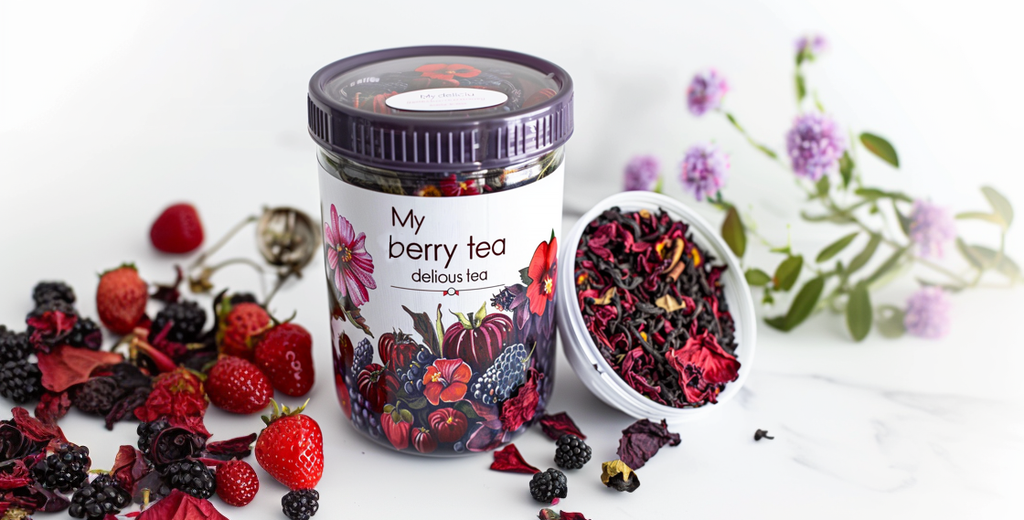Achieving hormonal balance naturally involves a combination of herbal remedies and lifestyle adjustments. By incorporating these strategies into your daily routine, you can support your overall health and well-being.
As a naturopath with extensive experience in women's health, I understand the profound impact hormonal balance has on your overall well-being. Fluctuations in estrogen, progesterone, thyroid hormones, and others can trigger a cascade of symptoms, affecting everything from your menstrual cycle and mood to sleep patterns and energy levels.
Key Takeaways
| What are the benefits of hormonal balance? | Improved menstrual regularity, mood stability, increased energy levels, better sleep quality, and overall well-being. |
|---|---|
| What herbal remedies can support hormonal balance? | Chasteberry, Ashwagandha, Maca, Red Clover, and Rhodiola rosea. |
| What lifestyle changes promote hormonal balance? | Manage stress, prioritize quality sleep, focus on a balanced diet, incorporate regular exercise, and limit exposure to endocrine disruptors. |

Understanding Hormones and Their Impact
Hormones are chemical messengers produced by glands throughout your body. They travel through the bloodstream, influencing various organs and functions. Estrogen and progesterone, for instance, orchestrate the menstrual cycle and fertility. Thyroid hormones regulate metabolism and energy expenditure. Cortisol, often referred to as the stress hormone, impacts mood, sleep, and blood sugar levels.
When hormones are in sync, your body operates optimally. However, hormonal imbalances can disrupt these intricate pathways, leading to a variety of health concerns.
Common Hormonal Imbalances in Women
- Polycystic ovary syndrome (PCOS): Characterized by irregular periods, excess androgen production, and potential for weight gain and insulin resistance.
- Endometriosis: The growth of endometrial tissue outside the uterus, causing pelvic pain and menstrual irregularities.
- Perimenopause and menopause: The transitional phases before and after menstruation ceases, marked by fluctuations in estrogen and progesterone, leading to hot flashes, night sweats, and mood swings.
Harnessing the Power of Nature: Herbal Allies for Hormonal Balance
Nature provides a treasure trove of herbs with properties that can gently nudge your hormones back into balance. Here are some notable examples:
-
Chasteberry (Vitex Agnus Castus): This herb has been used for centuries to regulate menstrual cycles and address PMS symptoms by promoting a healthy balance between estrogen and progesterone.
-
Ashwagandha: An adaptogenic herb revered in Ayurvedic medicine, Ashwagandha helps manage stress, a significant contributor to hormonal imbalances. It can also improve sleep quality, which further supports hormonal regulation.
-
Maca: This Peruvian root vegetable is known as a natural aphrodisiac. Maca may also help regulate menstrual cycles, improve symptoms of menopause, and enhance energy levels.
-
Red Clover: Rich in isoflavones, plant compounds with weak estrogenic activity, Red Clover may alleviate menopausal symptoms like hot flashes and vaginal dryness.
- Rhodiola rosea: This powerful adaptogen combats stress and fatigue, both of which can disrupt hormonal balance. Rhodiola rosea may also improve mood and cognitive function.
Remember: It's crucial to consult with a qualified naturopath before starting any herbal regimen. They can guide you on appropriate dosages and potential interactions with medications you might be taking.
Lifestyle Tweaks for Hormonal Harmony
Alongside herbal remedies, incorporating these lifestyle changes into your daily routine can significantly enhance hormonal balance:
-
Manage Stress: Chronic stress elevates cortisol levels, wreaking havoc on your hormones. Practice relaxation techniques like yoga, meditation, or deep breathing to combat stress effectively.
-
Prioritize Quality Sleep: Aim for 7-8 hours of uninterrupted sleep each night. During sleep, your body produces hormones essential for regulating metabolism, mood, and overall health.
-
Focus on a Balanced Diet: Nourish your body with a diet rich in fruits, vegetables, whole grains, and lean protein. Limit processed foods, sugary drinks, and unhealthy fats, as these can disrupt hormone function.
-
Incorporate Regular Exercise: Physical activity helps regulate blood sugar levels, which positively impacts hormone production. Aim for at least 30 minutes of moderate-intensity exercise most days of the week.
-
Limit Exposure to Endocrine Disruptors: Certain chemicals in plastics, pesticides, and personal care products can mimic hormones and interfere with their natural balance. Choose BPA-free containers, opt for organic produce when possible, and select natural skincare products.
Empowering Your Journey: Additional Tips and Resources
Embrace Bioindividuality: Remember, every woman is unique. What works wonders for one person might not be as effective for another. Be patient, experiment (under the guidance of your naturopath), and find the combination of herbs and lifestyle modifications that best supports your hormonal health.
Seed Cycling: This practice involves incorporating specific seeds into your diet during different phases of your menstrual cycle. Flaxseeds, pumpkin seeds, sesame seeds, and sunflower seeds are all rich in essential fatty acids, minerals, and fiber, which can contribute to hormonal balance.
Castor Oil Packs: Applying a castor oil pack to your lower abdomen can be a soothing and potentially beneficial practice for some women. Castor oil has anti-inflammatory properties and may improve circulation to the reproductive organs. However, it's important to consult with your naturopath before using castor oil packs, especially if you have any underlying health conditions.
Supportive Supplements: In some cases, your naturopath might recommend specific supplements to address deficiencies that could be contributing to hormonal imbalances. Vitamin D, magnesium, and omega-3 fatty acids are some examples of supplements that can be helpful.
Building a Support System: Surrounding yourself with positive and supportive people can make a world of difference in managing stress and fostering overall well-being. Don't hesitate to confide in trusted friends, family members, or a therapist if you're struggling with hormonal imbalances and their impact on your life.

Here are some quick stress relief techniques that you can incorporate into your busy schedule:
- Deep Breathing: This can be done in just a few minutes and can be incredibly calming. Try inhaling for a count of 4, holding for 7, and exhaling for 8.
- Mini Meditation: Even a few minutes of quiet reflection can be beneficial. Try focusing on your breath or a positive mantra.
- Stretching: A few simple stretches can relieve tension in your body and help you feel more relaxed.
- Walking: If possible, take a quick walk outside. Fresh air and movement can do wonders for your mood.
- Gratitude Journal: Take a moment to write down one thing you’re grateful for. This can shift your focus from stress to appreciation.
- Mindful Eating: Even if you’re busy, try to take a few minutes to really savor a snack or meal without distractions.
- Listen to Music: Put on a favorite song and let yourself get lost in the music for a few minutes.
The Road to Well-Being
Remember, consistency is key. By making these practices a regular part of your life, you'll be well on your way to experiencing optimal hormonal health and a renewed sense of vitality.
Disclaimer: The information presented in this article is for educational purposes only and is not intended as medical advice. Please consult with a qualified naturopath or healthcare professional before starting any new herbal regimen, making significant dietary changes, or undertaking new exercise routines.


